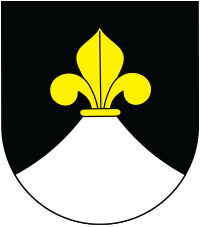Dominicans digitalize religious books and centralize and update data on libraries even from the period of socialism. The archive contains information about more than 600,000 books written in Slovak, Czech, Latin and other languages (thousands). Eighty thousand one hundred and seventy-five books are available in a physical or electronic form. In the socialist era, Slovak Dominicans operated in the “underground church” after the Night of the Barbarians (13 and 14 April 1950) when all the monasteries were shut down in Czechoslovakia. Dominican Father Akvinas Juraj Gabura (1915) did not let himself be deterred even after his imprisonment (which ended in 1960) and worked in the underground church, translated philosophical and theological texts and reproduced them on a typewriter. With the Košice friary and with the Czech Dominicans who he was in contact with, they secretly established friaries in Bratislava and in Žilina just before the collapse of socialism; later also in Dunajská Lužná and Zvolen. After the collapse of socialism, the number of friars increased, and the Dominicans could return to their friary in Košice. In 1989, they started to build a library in all their friaries and to collect all the samizdats and illegally distributed religious literature. In 2010, they began working on a unified internet project called the Dominican Book Institute.
In 1954 and 1955, the School Sisters of Saint Francis worked in the institutes of the Czech Catholic Charity: in retirement homes and in institutes for mentally disabled children and youth. The Prague Spring of 1968 brought about a political relaxation and the possibility to admit young people to the order. New sisters could join the congregation again. The sisters seized the opportunity to return to Slovakia where several smaller communities came into being. These helped in parishes and performed catechetical activities. Some of them worked in healthcare. However, the normalization period came, and the Communists started to prosecute the church again. To the outside, the sisters had to renounce their habit and work in various lay employments. Many of them secretly joined the congregation, were under surveillance by the secret police, were called for interrogations and some of them even spent some time in prison. During the “VIR” Action, i.e. an intervention by the National Security on Palm Sunday on 27 March 1983, the houses of Franciscan brothers and sisters were raided (Prešov, Košice, Poprad, Tvrdošín, Ružomberok, Bratislava). Members of the National Security searched their houses and seized religious literature, liturgical items, typewriters and passbooks. The Franciscan brothers and sisters were arrested, imprisoned and accused of obstruction of the supervision over the church because they secretly joined the Franciscan Order and performed activities in it. The monks and nuns were not discouraged by their prosecution and, after 1989, continued to perform their activities legally. In 1990, the congregation received back its provincial house in Žilina and, gradually, the sisters could return to Slovakia from the Czech Republic. The communities in Bratislava, Trnava, Ružomberok, Poprad, Prešov and Košice could come out from the “underground” and the School Sisters began to wear the habit of their order in public, too.

